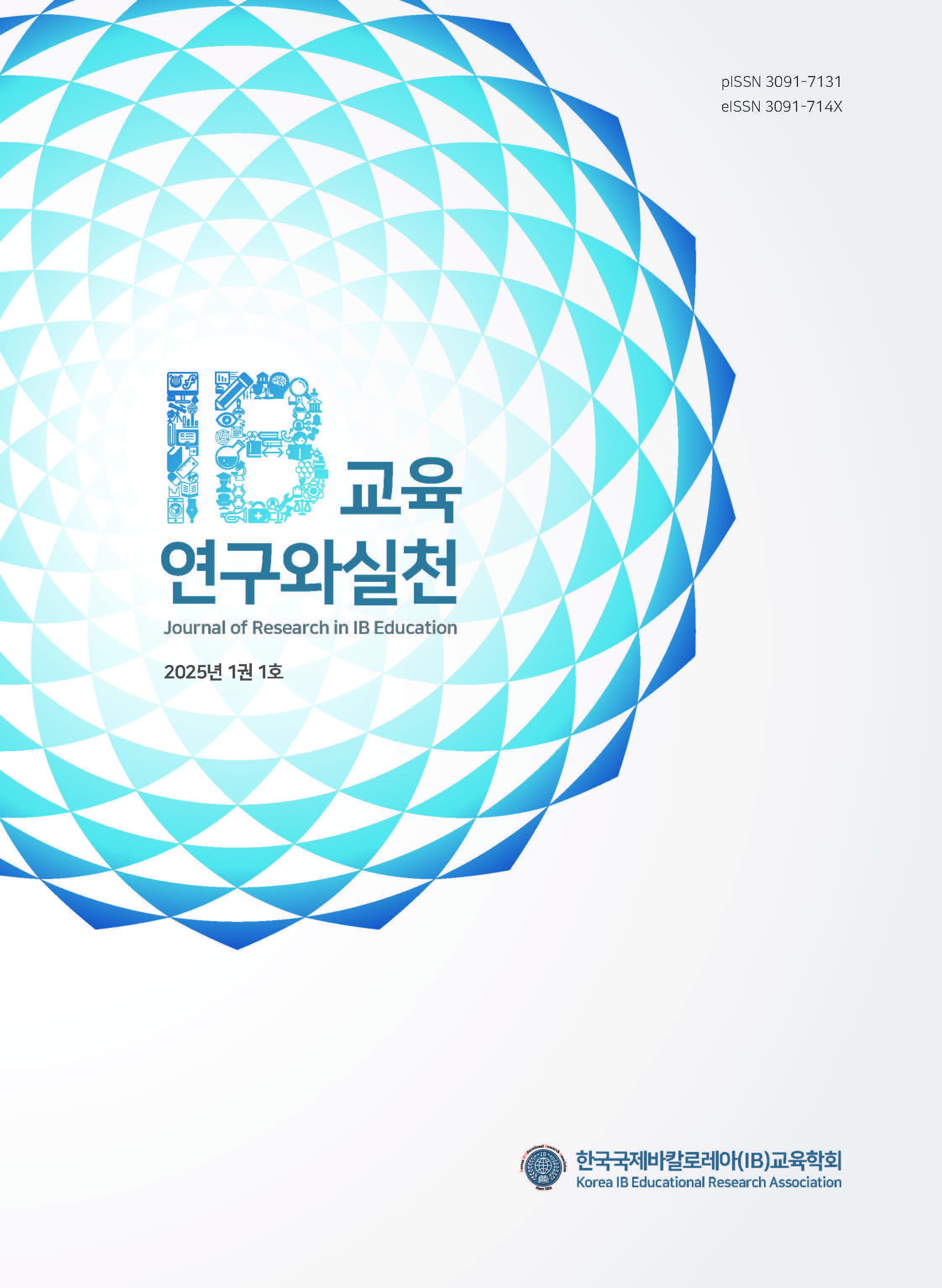IBEC 비학위과정 운영 사례와 시사점: 경북대학교의 사례를 중심으로
Case Study of the Operation of the IBEC Non-Degree Programme and Its Implications: A Case of Kyungpook National University
- 한국국제바칼로레아(IB)교육학회
- IB 교육 연구와 실천
- 제1권 제1호
-
2025.0499 - 118 (20 pages)
- 42

연구목적: 본 연구에서는 IBEC을 운영하고 있는 대학의 IBEC 비학위과정 사례연구를 통해 IBEC 과정이 어떠한 특징을 지니며, IBEC을 운영하는 기관에서 참고할 만한 시사점을 제시하는 데 주요 목적이 있다. 연구방법: 사례연구로서 경북대학교 IBEC 1기 비학위과정의 사례를 제시하고, 해당 과정에 참여한 비학위과정생과 전문 연구원을 대상으로 선택형⋅서술형 의견조사를 통해 운영의 과정과 결과를 CIPP 모형에 입각하여 제시하였다. 연구결과: 상황의 맥락에서 IBEC 공식 인증과 지역 교육청의 수요와 자체 선발을 통해 IBEC 1기를 운영할 수 있었다. 투입의 맥락에서 환경, 강좌 수, 현장 교사 교수진에는 만족도가 높았으며, 행정처리 등에 있어서는 개선이 필요하였다. 과정의 맥락에서는 전반적으로 만족도가 높았으며, 현장 연계와 실습 위주의 교육과정이 중요한 것으로 나타났다. 산출의 맥락에서는 성찰, 탐구, 사고를 통해 수업 및 평가에 있어서 전문성을 신장할 수 있었다. 학술적 기여: 본 연구 결과를 통한 시사점은 다음과 같다. 향후 IBEC 운영 기관에서는 IB 이해도를 높이는 교과⋅비교과 교육과정을 풍부하게 운영하며, 자생적인 운영 방안 모색과 동시에 교육과정-수업-평가의 전문성을 중심으로 협력적 거버넌스 하에 장기적인 비전으로 IBEC을 운영할 수 있어야 한다.
Purpose: This study aims to explore the characteristics of the IBEC programme and provide implications for institutions operating the IBEC programme, through a case study of an IBEC non-degree programme at a university running the IBEC. Methods: As a case study, the first cohort of the IBEC non-degree programme at Kyungpook National University was examined, and multiple-choice and descriptive questions were conducted with non-degree students and administrative staffs who participated in the programme. The process and outcomes were presented based on the CIPP model. Results: In terms of context, the IBEC program’s official accreditation and the demand from the regional office of education, along with the institution’s own selection process, allowed for the operation of the first cohort. In terms of input, satisfaction was high with the environment, the number of courses, and teacher instructors, though improvements were needed in administrative procedures. In the case of the process, overall satisfaction was high. Curriculum focused on field connections and practical training was deemed essential. Regarding product, the programme enhanced professional competence in teaching and assessment through reflection, inquiry, and thinking. Contributions: The implications of this study are as follows: Future institutions operating the IBEC programme should offer a rich curriculum that enhances understanding of IB, explore sustainable operational strategies, and manage IBEC with a long-term vision based on harmony among stakeholders.
Ⅰ. 서론
II. IBEC 현황
III. 연구 방법
IV. 연구 결과 : CIPP 모형에 입각한 비학위과정 운영 사례 및 특징
V. 결론 및 함의
(0)
(0)